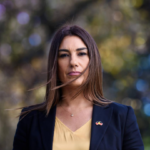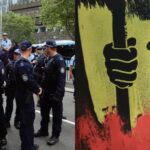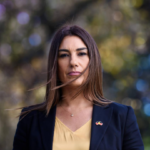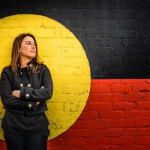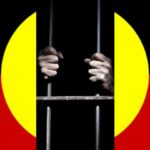A-G Won’t Explain How ‘The Voice’ Will Affect Acknowledged First Nations Sovereignty
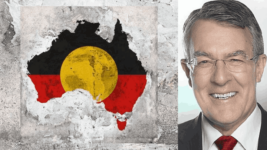
Greens Senator Lidia Thorpe has been repeatedly putting to the government, whether First Nations recognition in the Constitution, along with the insertion of an advisory body with no guaranteed authority, will affect Indigenous sovereignty.
The government and the media have been asserting that the senator is some kind of killjoy by asking this valid and certainly pertinent question, and yet, most every time she pushes the point, politicians try and skate around it, or roll their eyes and sigh, “Here we go again.”
But the question of sovereignty on this continent is of great significance to all. It’s why there’s a lack of quietude in those moments when people catch themselves between thoughts drifting down shopping mall aisles wondering which item to purchase.
The British thought the question of sovereignty was of such importance that when they decided to grab yet another piece of resource rich land under the pretext of starting a penal colony, that they based the act on the doctrine of terra nullius: that the land was empty of sovereign peoples.
And yet around 240 years later, when the settler colonialists are coming clean and are ready to close the gaping chasm they created with the provision of a voice to the oppressed, when asked if the plan might be a backdoor way of extinguishing First Nations sovereignty, they recoil in horror.
Constitutional recognition
When Thorpe sat across from AG Department secretary Katherine Jones and asked that question, the public servant then very tellingly referred to the Voice as “constitutional recognition”, and explained her office was too busy to contemplate its effects upon Indigenous sovereignty.
One of the pursuits the attorney general has got his staff pursuing is “supporting the constitutional legal experts’ group”, which begs the question why Jones doesn’t just ask them what one sovereign, yet dispossessed, people going into the founding document of their oppressors might mean.
Attorney general Mark Dreyfus couldn’t make the 7 November budget estimates hearing, so agricultural minister Murray Watt stood in for him. When Senator Thorpe quizzed Watt on sovereignty and whether going into the constitution ceded it, he said, “The answer is no”.
Thorpe’s response was “fantastic”, although she delivered it like she didn’t really mean it. The senator has since pointed out, however, the significance of the entire exchange with the AG’s office, as his staff was freely acknowledging First Nations sovereignty, which isn’t the usual.
The Greens senator then asked the Labor senator, that, as he was, at that point, acknowledging First Nations sovereignty would not be ceded, how did that position square up with the British imposed government’s stance, over the last 200 years or so, of always having denied its existence.
Watt’s response to Thorpe’s further questioning was that it was getting a bit too deep into “constitutional law” for such a casual setting as Australian parliament.
Where does that leave treaty?
But Watt did affirmatively say that First Nations sovereignty won’t be ceded by constitutional recognition via the insertion of an Indigenous advisory body into the founding document.
“The departmental officials have twice said to you that they wouldn’t characterise it that way,” Watt chastised Thorpe, “and, as the representative of the attorney general, I can say that it doesn’t, from the government’s point of view.”
So, now that Dreyfus has advised the nation by proxy that the Voice proposal won’t affect First Nations sovereignty, wouldn’t it be a good idea if Australia’s first lawmaker at least presented a technical explanation as to just why that is so in order to assure the constituency?


